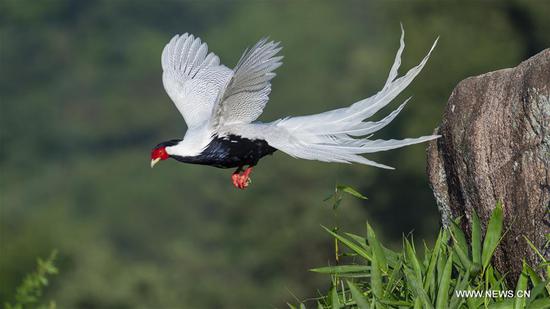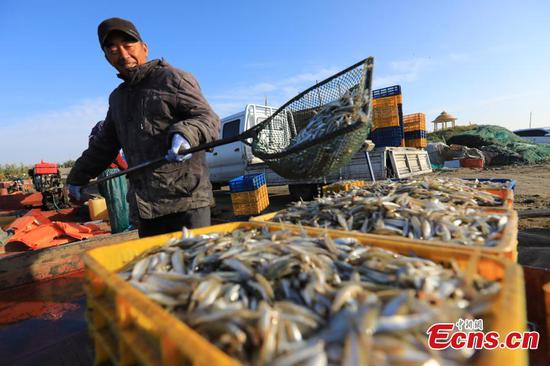China's draft biosecurity law was on Monday submitted to a bimonthly session of the National People's Congress Standing Committee for deliberation.
The draft focused on protecting the security of the country's biological resources, promoting and safeguarding the development of biotechnology, and preventing and prohibiting the use of biological agents or biotechnology that may harm national security.
To address the need for both safeguarding security and development, the 75-article draft introduced regulations in eight categories:
-- The prevention and control of major emerging infectious diseases, animal and plant epidemics.
-- Research, development and application of biotechnology.
-- Ensuring biosecurity in laboratories.
-- Ensuring the security of China's biological resources and human genetic resources.
-- Preventing the invasion of alien species and protect biodiversity.
-- Dealing with microbial drug resistance.
-- Preventing bioterrorism attacks.
-- Defending against the threat of biological weapons.
It pledges to put in place biosecurity systems of monitoring and early warning, standards, directory and list management, information sharing, risk assessment, emergency response, decision-making and technical consultation, as well as customs supervision system and measures.
To boost the country's capacity building in safeguarding biosecurity, the draft pledged to give financial and policy support to the sector to stimulate independent and innovative research and development.
The draft also reiterated China's commitment to the building of a community with a shared future for humanity through efforts in achieving biosecurity.
On biosecurity issues, China has ratified the UN Biological Weapons Convention, the UN Convention on Biological Diversity, the International Convention for the Protection of New Varieties of Plants and the International Plant Protection Convention, among others.


















































